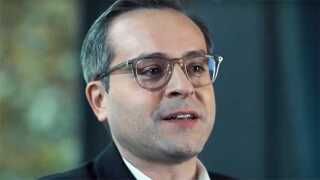The Hollywood Golden Age, the period between 1930 and 1959, saw some of cinema’s greatest of all-time, including: Marlon Brando, Marilyn Monroe, Humphrey Bogart, Elizabeth Taylor, James Stewart, Grace Kelly, and many more. For nearly 30 years, dozens of movies were produced and became the cinema classics we know of today.
You might be aware of “Hollywood”, the latest Netflix series by screenwriter, producer and director Ryan Murphy brings to the screen scenes of that Golden Age in the post-World War II era. The mini-series follows several young and aspiring actors and actresses fighting to make their dreams of starring in the big screen come true while also addressing topics of racial, gender and sexual orientation discrimination, topics that nearly 60 years after are still very current.
Fast-forwarding to today’s age, technology has since changed and evolved rapidly, creating a cinema empire under the Hollywood umbrella with revenues of more than US$42 billion in 2019. However, this is projected to severely drop in 2020 to $22 billion - $25 billion as a direct result of the Covid-19 pandemic.
By now you must be asking what does a Hollywood setting have to do with telcos? The telecommunications space saw its own Golden Age, reaching its peak in the 1990s, which would come to an abrupt end in the yearly 2000s with the bankruptcy of WorldCom that saw the fibre-optic dream nearly slip away from the history books.
At the time, WorldCom’s CEO, Bernard Ebbers, was sentenced to 25 years in prison for fraud. So were many others. Ebbers recently passed away in February 2020. WorldCom’s bankruptcy would then lead on to a snowball effect eating up many of the telco logos that led the market back then.
The wider state of the telecoms industry even led The New York Times to run an article in 2002, where it wrote: “rarely have so many people with so much money got it so wrong”. This was referring to billionaires Bill Gates, James Crowe, Walter Scott and Warren Buffett, who, in the advent of the internet, helped drive the fibre discussion at the time.
Zayo’s CEO Dan Caruso has labelled the period between 2002-2006 as a telecom nuclear winter, where “the whole hell broke loose”.
Following the Telco Golden Age and the subsequent Nuclear Winter, since 2007-2008 – and facing a global economic crisis at that point – telcos have been re-building and re-adapting to a new world. A world that has become more digital, fast and connected – especially in 2020 with the Coronavirus.
However, telcos have gone from being the main stars in the movie, to having to share the screen with some younger businesses. As Carl Roberts, partner at Hadaara Consulting and this year’s head judge for the Capacity’s Global Carrier Awards, explains, if we are to use the Hollywood analogy, telcos are today sharing the screen with actors like Google, Microsoft, AWS and Facebook.
“If we look at the investments in subsea cables, the majority of these new initiatives are coming from the Googles, the Facebooks, the Microsofts, the Amazons of this world. If it was a movie, I would say it would be starring those OTTs as actors and also starring the telecoms operators, which has always been a big change,” he says.
Nevertheless, telcos are and will continue to play a leading role in the way the world is connected, but there are critical business considerations they need to take in order to succeed.
The next age
Investment and digital modernisation are potentially the two main lines of business operators are focusing on.
This includes acquisition of new brands, talent or technology and the development of more software-driven environments/networks where automation gives the ultimate edge, without forgetting the need to continue to bulk up security across the entire stack.
“Is there investment money for deals in telecoms? Absolutely,” says Roberts. “Private equity people are not so worried about if a fund can be raised, it is more about if the right kind of project can be found.
“What we’ve got is two phenomena. First, there is the consolidation phenomenon, and this will happen in industries where really it’s all about scale and specialisation; and secondly, carriers are reinventing themselves and adding capability to their portfolio as that portfolio needs to change.
“Enterprise customers are looking for solutions which are value-added platforms, that offer a level of sophistication higher than what you’d normally class wholesale and somewhat less onerous than what enterprise divisions are selling. We have a kind of compression of wholesale and enterprise business.”
There is a blurring of the lines in enterprise and wholesale also being driven by software start-ups or unicorns on top of what Roberts explains above. And that could easily also happen in the marketplace. Roberts says:
“Messaging and security start to take the place in traditional voice capability. Enterprises are looking for a lower price point. It’ll be interesting to see how that develops. As usual, you’re always looking not just at the next step, but the step after that, because the technology, especially software, is going so quickly. If you go back 20 years, people said voice was dying, but it’s still here for sure, and in 20 years from now [it will still exist]. Although, it won’t be there in its current form.
“You have to be like a good chess player, two or three steps ahead. In the international wholesale business, most of the big carriers are doing one or two things: they’re either into a consolidation play or they’re into a reinvention and acquiring a new capability into their portfolio, either through developing it themselves or through acquiring parties that have already got that and then integrating it into their portfolio.
“It boils down to one thing: whoever owns the software will own the future. Carriers have to become a lot more software savvy because control of that will mean that they’ll continue to be important players in the future.
“Otherwise, what will happen is that all these infrastructures, which cost a lot of money to put in place, will be considered as a basic utility, as opposed to a value-added utility and people won’t price it the right way – let alone the fact that [these infrastructures] are so essential and people will give up investing in it. We just cannot afford for that to happen.”
Roberts defends that the role of carriers needs to be more at the forefront of the application, and he also urges the industry – carriers and OTTs – to collaborate a lot more.
“Here’s my fundamental belief: there are a lot of things that if [an operator] carries with them, the OTTs wouldn’t feel the need to do it themselves,” he adds.
Asked if eventually we could see one blockbuster acquisition in the OTT/telco stage, Roberts is of the view that that could indeed happen eventually.
“Imagine having Google and Verizon getting together, or Microsoft and AT&T, I think it’s not impossible that things like that could be envisaged,” he says.
“From an anti-trust standpoint, it is going to be difficult but maybe that’s the kind of thing that could lead to a more intelligent, collaborative, institutionalised way of working, which would benefit everybody.” Certainly a ‘telco movie’ to be continued...









